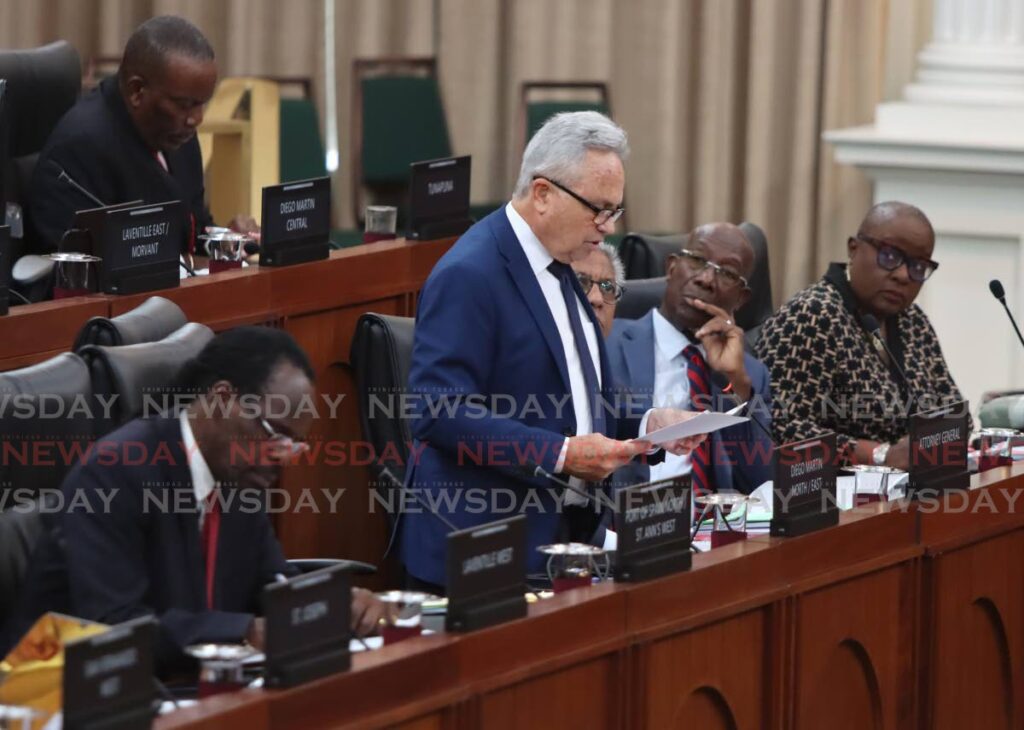Senate to debate property-tax changes on March 25

THE Senate will debate the Property Tax (Amendment) Bill 2024 when it sits at the Red House on March 25 from 1.30 pm
The bill was passed in the House of Representatives on March 18 by a vote of 20-15.
When he opened debate on the bill in the House on that day, Finance Minister Colm Imbert reminded MPs of his statement in the House on March 15 on the intentions behind this bill.
He made the statement after the public raised concerns about the suspension of property-tax payments and in the wake of complaints of the rental valuation of their properties being excessively high.
Imbert said the regulations which were published on March 15 allow indigent, elderly, or infirm people to apply to the Board of Inland Revenue (BIR) for a deferral of property-tax payments.
He also said an order to extend the time for people to object to valuations of their residential properties from 30 days to six months had been published.
Imbert said that compared to other countries, TT was unique in the number of ways people could challenge valuations of their residential properties. They include raising concerns with the Commissioner of Valuations, the Valuations Tribunal, the BIR, the Tax Appeal Board and the High Court.
Against that background, Imbert said, “It would have been quite easy for us to do nothing. But that is not how this government operates.”
The BIR, he continued, was on target to complete the delivery of notices of tax assessment to residential owners before March 31.
“The BIR was quite automated in its process, generating as many as 15,000 notices per day. So they could have easily completed this exercise in a couple of weeks.”
But he reiterated that in light of the public’s concerns, the Finance Ministry’s permanent secretary has asked the BIR “just to hold their hand until we sort out these legislative amendments.
“The primary reason why the time period to issue notices of assessment is being extended is to deal with discrepancies in the valuations.”
Imbert said one of the benefits of the bill would be that if people received notices of valuations on their properties last November, they now have until April to challenge those valuations if they think they are unfair.
The bill, he continued, gives Government the opportunity “to now include in the Property Tax Act a provision where the time for doing anything...delivering notices of tax assessment...the imposition of penalties...and so on...can now be extended, in the same way that it can be done under the Valuation of Land Act.”
Under this legislation, Imbert said, “There is a provision where the time period to challenge a valuation can be extended by order.
“We are now including a similar provision in the Property Tax Act, so as we go along, if we see the need to extend the time by which taxes should be paid...to extend the time by which penalties and interest are to accrue and so on...we can extend.”
Imbert repeated what he told the House on March 15 about the historical complexity involved in the valuation and collection of property taxes. “This is a work in progress.”
He reminded MPs that the 2009 Property Tax Act was designed to simplify the valuation and collection of property tax because previous pieces of legislation caused vagaries which led to serious inequities.
He also said one of the features of the bill was to reduce the rate of residential property tax from three to two per cent of a property’s ARV.


Comments
"Senate to debate property-tax changes on March 25"